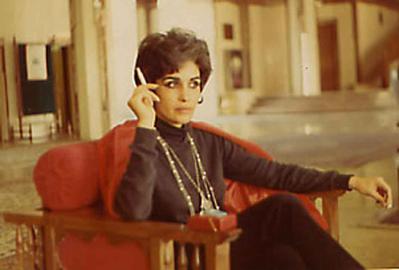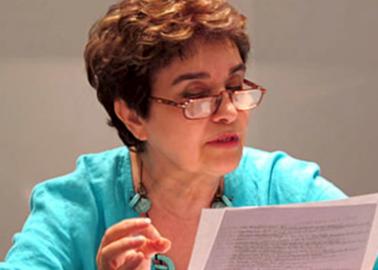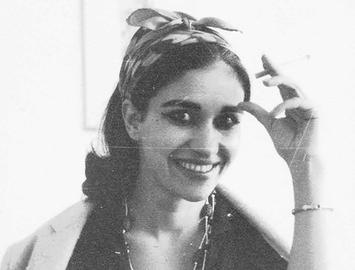Global and Iranian history are both closely intertwined with the lives and destinies of prominent figures. Every one of them has laid a brick on history’s wall, sometimes paying the price with their lives, men and women alike. Women have been especially influential in the last 200 years, writing much of contemporary Iranian history.
In Iran, women have increased public awareness about gender discrimination, raised the profile of and improved women’s rights, fought for literacy among women, and promoted the social status of women by counteracting religious pressures, participating in scientific projects, being involved in politics, influencing music, cinema... And so the list goes on.
This series aims to celebrate these renowned and respected Iranian women. They are women who represent the millions of women that influence their families and societies on a daily basis. Not all of the people profiled in the series are endorsed by IranWire, but their influence and impact cannot be overlooked. These articles are biographical stories that consider the lives of influential women in Iran.
IranWire readers are invited to send in suggestions for how we might expand the series. Contact IranWire via email ([email protected]), on Facebook, or by tweeting us.
"I proudly raise my voice in support of Mr. Shapour Bakhtiar. Even if this voice is left on its own in space, I have never been scared to be alone. This time, however, I am scared, not for my own sake but for the future of this land and the fate of all those whom I love."
These are the words of a young woman who did not live in fear, who was brave enough to speak out and did not abide by the wave — the wave of joining the majority of society at the peak of the revolution. Mahshid Amirshahi stood on the side that she believed to be the right one. On February 6, 1979, as the Islamic Revolution was taking hold in Iran, she wrote an article entitled “Will anybody support Bakhtiar?”, which was published in the newspaper Ayandegan. In the article, she expressed support for Shapour Bakhtiar, the last prime minister under the shah, and criticized the Iranian intellectuals, politicians, members of parliament, and diplomats who kept silent as clerics interfered in politics and changed their stance at the threshold of the revolution. She was the only intellectual at the time to fearlessly raise her voice in opposition to the revolutionary turmoil that had gripped the nation.
Mahshid Amirshahi may not be known to many people born after the revolution. A writer, satirist, translator, and journalist, she went to France after the 1979 revolution and never returned to Iran. Since then, she has avoided interviews with the media. She has been very selective and built her unique world on the fringes, so much so that no one knows exactly when she was born. On the back cover of some of her publications are the words: "I don't think my date of birth and birth certificate number, my mother's name or my father's job are interesting to anyone but registrars. Therefore, exempt me from the pain of writing about such things and the readers from the boredom of reading them. Moreover, for a woman who is gradually looking for new white hairs in the mornings and anxiously examines the wrinkles under her eyes, it is not pleasant to talk about age. To insist on knowing it is far from having finesse."
Nevertheless, we know that her father, Amir Amirshahi, was one of the top retired judges from the Ministry of Justice and her mother, Mulud Khanlari, was a prominent political and women's rights activist of her time. They had three daughters, Mahshid being the middle one.
Mahshid Amirshahi attended school in Tehran, first at Firuzkuhi Primary School and then at Nurbakhsh High School. She then went to the United Kingdom to study physics. She returned to Iran after her graduation and, being fluent in English, she began to translate literary works into Persian, which paved her way to Franklin Publishing, a non-profit initiative led by United States’ library and publishing associations that published books in the native languages of developing countries, where she began to work as a literary and science editor.
At Franklin, she worked with prominent artists of the time, including Nureddin Zarinkelk and Parviz Kalantari. The collaboration motivated her to begin writing books for children. She also conducted research at the Iranian Educational Textbooks Planning Center and taught English at Paris Sorbonne University.
Before the 1979 revolution, Mahshid Amirshahi's name was unknown in the field of politics, but she was already known for her writing. Years later, after the publication of her book In the Presence, she was recognized as an intellectual and dubbed the "only honest narrator of the revolution.”
In one of the few interviews she gave, when asked by German newspaper with Deutsche Welle why she openly supported Bakhtiar at the peak of the revolution and opposed the Islamists and other revolutionaries, she said: "I think it was due to my acquaintance with the history of my country as well as other countries to some extent. History has shown that whenever religion interferes in politics, it has no fruit other than misery and oppression. The religious musts and must nots demand a kind of obedience from the people that the Iranians will not yield to; they are against individual freedom and democracy, which I have always believed in. I imagine when all those events began, I realized how dangerous the situation was as the result of my knowledge of history."
In the course of the revolution and particularly after her open support of Shapour Bakhtiar against the Islamists, she was inevitably forced to leave the country and surrendered to self-exile and compulsory migration.
It is for that reason that she went to France. She had said that although the article she wrote in support of Bakhtiar at that time led to hostility from the revolutionaries, it was not because of that that she left Iran. "I was thinking that we should resist and stop the clergy in the country. At that time I was the only member of my family still living in Iran. In addition to what I had done, they heard rumors, which made them extremely worried for me. That is why I decided to visit them to prove that I was all right. When I finally reached Europe, the Iran-Iraq war broke out and it was no longer possible for me to return."
During the initial years after she left the country, Mahshid Amirshahi concentrated her political activity on defending freedom of expression and the separation of religion and politics. In 1992 she led France’s campaign to support Salman Rushdie, who faced a campaign of violence and hatred from some Muslims, and who Ayatollah Khomeini called on Muslims to murder. She helped found the Committee to Defend Salman Rushdie in France” with French intellectual Claude Lefort, and published a statement on behalf of Iranian artists and intellectuals in his defense.
On a program broadcast on the weekly BBC Persian program Tamasha hosted by Maryam Erfan, Amirshahi talked of her love for the Persian language. "In my sunless, exile, isolated and gloomy room, with its window not opening to any green branch or a corner of the blue sky, I talk to myself in a loud voice so that I will hear the echo of Persian words again.”
Her love for her mother tongue drove her commitment to both writing and politics, and she gave book readings and lectures all over the world, including at Harvard University, the French Senate, and the World Congress of Spanish writers, all of which were well received by both prominent writers and audiences. She has been celebrated for her writing and credited with bringing the Persian language to wider audiences, with one Canadian lecturer in comparative literature drawing attention to the immersive and compelling nature of her work.
Mahshid Amirshahi says she has paid the price for the stances she has taken, and for being a loner, which she has described as painful. But she added, "It has another consequence as well and that is the sense of pride, which heals that pain."
Read other articles in the series:
Iranian Women You Should Know: Maryam Khatoon Molkara
Iranian Women You Should Know: First Female Coal Miner
Iranian Women You Should Know: Gohar Eshghi
visit the accountability section
In this section of Iran Wire, you can contact the officials and launch your campaign for various problems




























comments